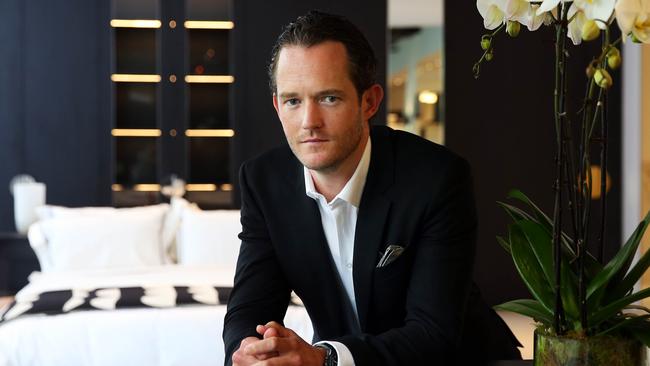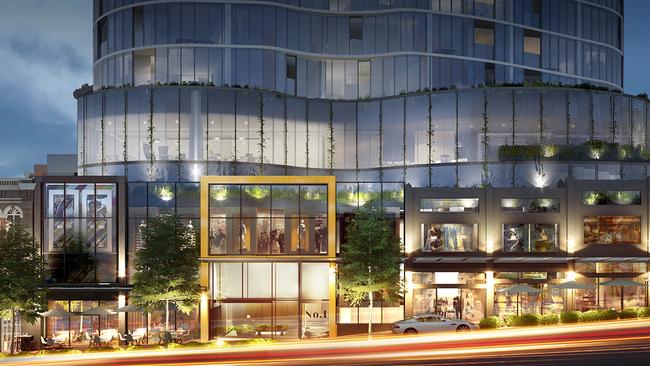First-home buyers have unrealistic expectations, property tycoon says
A PROPERTY tycoon worth $473 million thinks he knows why people can’t afford homes. His advice is absolutely scathing.
A YOUNG rich lister who made his fortune off the back of Australia’s capital city property boom says his generation needs to stop buying $4 coffees and travelling if they want to own a home.
Developer Tim Gurner, 35, is worth nearly half a billion dollars but has delivered a brutal smackdown to some would-be first home buyers struggling to get a toehold in the market.
“When I was buying my first home, I wasn’t buying smashed avocado for 19 bucks and four coffees at $4 each,” he told 60 Minutes in a segment exploring Australia’s housing affordability crisis.
“You have to start to get realistic about your expectations. There is no question we are at a point now where the expectations of younger people are very, very high.
“They want to eat out every day, they want to travel to Europe every year. This generation is watching the Kardashians and thinking that’s normal. Thinking that owning a Bentley is normal, that owning a BMW is normal.


Mr Gurner was ranked 157 on this year’s Financial Review Rich List after making $473 million in 10 years. He started out by taking over a lease on a suburban gym as a 19-year-old, using $34,000 given to him by his grandfather. He sold the business a year later to a competitor and went into property development, riding the boom in Melbourne and Brisbane. His Gurner company now has 5000 apartments worth $2.7 billion on its books.
Mr Gurner said there was “no question” many young people today were blowing their money on a lifestyle, then whingeing about homes being too expensive.
“You’re not going to get a house in Camberwell for $700,000, you’re not going to get one in Alexandria in Sydney, you’re not going to get one in Newstead in Brisbane. I mean the market has changed.”
“I think until this generation realises that the people that own homes today worked very, very hard for it, saved every dollar, did everything they could to get up the property ladder (they won’t get ahead)
“You might have to buy an investment property first, you might have to share with mum and dad, you might have to buy with a friend, but you’ve got to get your foot in the door and you’ve got to slowly get up the ladder.”
Armed with a business degree, Mr Gurner went to work for veteran developer Morry Schwartz before co-founding his first development firm Urban Inc with a business partner in 2005, focusing on apartments in inner city Melbourne.
Twelve years on, he still believes there is a massive apartment undersupply in that city, and he is now looking towards capitalising on the struggling Perth market.
“We will have a look at Perth this year definitely. I think it is a counter-cyclical opportunity at some point,” he told the Financial Review.


HOW TIM DID IT:
He sells to the Chinese, but he won’t compete with them.
Asked how he secures his development sites in a Q&A with The Urban Developer three years ago, he said:
“I haven’t bought anything on-market except for one. You are competing with the Asian developers when you do that.”
His greatest flaw is his perfectionism.
“My biggest negative is I’m definitely a perfectionist. I always say we can do things better,” he told the Financial Review.
“You’d be surprised about the level of detail. I still mark out every plan, down to couch locations and antenna locations, every paint colour, door handle and everything. I’m obsessed because it has my name on it.”
He mitigates risk by keeping some of his apartments to rent out, a technique perfected by billionaire property tycoon Harry Triguboff.
“What is giving me most confidence is the strength of the rental market. So we are seeing more longer term leases and people competing with each other for those leases.”
Sydney was too expensive, even for him.
“I always wanted to be in every state,” he said back in 2014. “I tried Sydney but it’s virtually impossible to buy up there. I tried Perth but I couldn’t get my head around the values. Brisbane just really made sense.”
TIM GURNER ‘HOW I TURNED A LOCAL GYM INTO $460M’




